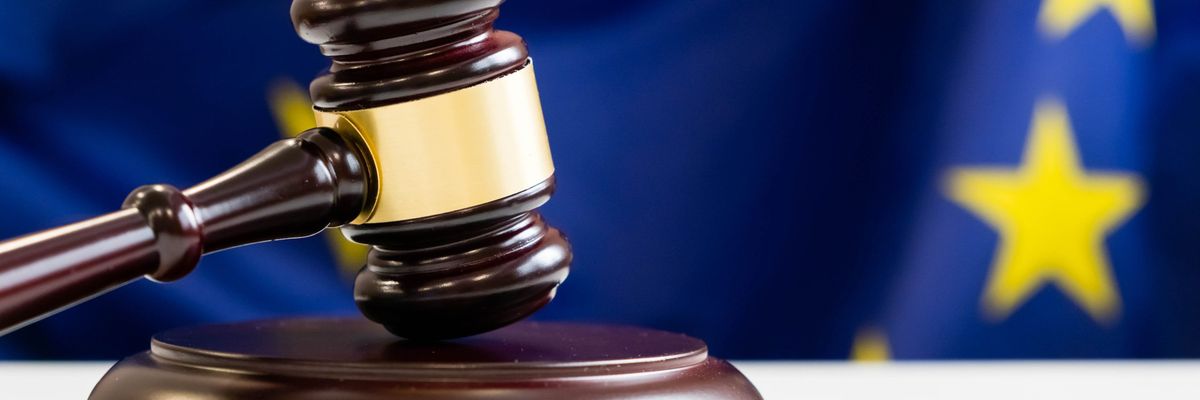As the Biden administration is criticized for failing to impose sanctions on Crown Prince Mohammed Bin Salman of Saudi Arabia for the murder of the dissident journalist Jamal Khashoggi, relations with other Persian Gulf monarchies are likewise coming under an increased scrutiny.
While former President Trump’s approach to the ruling regimes in these countries was purely transactional, calls are multiplying on the Biden administration to live up to its pledge to put human rights “at the center of the U.S. foreign policy”. In this vein, a group of 15 rights groups, including the Bahrain Institute for Rights and Democracy, Amnesty International, Reprieve, and the World Organization Against Torture, urged U.S. State Secretary Antony Blinken to address the worsening of the human rights situation in Bahrain. The department’s spokesman Ned Price has stressed the importance of bringing values to the bilateral relationship and Sen. Ron Wyden issued statement on Bahrain’s crackdown on the 10th anniversary of the popular uprising.
The European Parliament followed suit by adopting, on March 11, its own resolution on the subject. The motion passed 633 to 11 (and 45 abstentions), with the favorable votes covering the entire political spectrum. The only naysayers were, tellingly, a handful of members from the Alternative for Germany, a far-right party recently put under surveillance by German domestic intelligence on the suspicion of trying to undermine the country’s democratic constitution.
The resolution takes the Bahraini authorities to task for the recrudescence of repression since 2011. It notes that the rights to peaceful protest, freedom of speech, expression and assembly are violated or restricted; that human rights defenders and political activists face “ongoing systematic targeting, harassment, detention, torture, intimidation, travel bans and revocation of citizenship.”
MEPs condemn the fact that no political opposition is tolerated in Bahrain, and that the largest political party dedicated to non-violence, al-Wefaq, was dissolved, with its leader Shaikh Ali Salman currently serving life imprisonment on dubious espionage charges. A number of other individual cases were raised in the resolution, like those of a human rights defender Nabeel Rajab and Abdulhadi Al-Khawaja, a Bahraini-Danish citizen, the co-founder of the Bahrain Center for Human Rights and the Gulf Center for Human Rights who is completing his tenth year in prison on trumped-up terrorism charges.
Given these abuses, MEPs are calling for targeted sanctions against the officials responsible. They also call on all the member states to “strictly observe the EU Code of Conduct on Arms Exports, and in particular to halt all transfers of weapons, surveillance and intelligence equipment and material that can be used by Bahrain in its ongoing crackdown on human rights.”
The resolution clearly struck a nerve in Manama. In an e-mail sent to undisclosed MEPs and staffers prior to its adoption, the Bahraini mission to the EU took a particular issue with the socialists, the largest center-left group in the chamber. While it is entirely legitimate for the embassies to express views on resolutions concerning their countries, the tone of the missive was unusually undiplomatic. It accused the socialists of basing their assessments on “outdated and fabricated information, produced by unreliable and biased sources with politically motivated agendas.” When this outburst failed to produce any impact on the outcome of the vote, the foreign ministry swiftly denounced the motion as based on “dishonest claims and fallacies seeking to harm the kingdom’s reputation.”
Such frustration is understandable. Like its allies Saudi Arabia and United Arab Emirates, Bahrain invested heavily in building influence in Brussels, trying to project an image of a tolerant and modern country. Normalization of relations with Israel, known as Abraham Accords, sought to enhance a benign perception of the kingdom in Europe. The dissidents, meanwhile, are delegitimized as malcontents and Shiite radicals edged on by Iran to subvert Bahrain’s “progressive society.”
A major role in disseminating such views was played by the Euro-Gulf Information Center, a lobby group disguised as a think tank, until its director Mitchell Belfer was exposed as having lied about his PhD. Friendly MEPs, the hawkish group European Foundation for Democracy, and an array of PR groups dedicated to whitewashing the post-2011 crackdown were other venues.
These investments, however, failed to advance the Bahraini narrative. The Abraham Accords and alleged Iranian threat were not mentioned in the resolution and only barely during the parliamentary debate, where almost all MEPs focused solely on Bahrain’s human rights record. Bahrain’s supposed strategic value to the EU was similarly downplayed: the European Conservatives and Reformists group that has long-standing relations with the kingdom pushed for language that called Bahrain a “key ally of the EU and NATO in the Arabian Gulf,” only for the majority to settle on an “important partner in the Persian Gulf” instead.
Prior to the Brexit, British conservative MEPs used to champion Bahrain’s case, so their departure weakened the kingdom’s positions. To be sure, the ECR tried to dilute the resolution by seeking to remove language on halting the arms sales to Bahrain, with the support of the center-right European People’s Party and the far-right Identity and Democracy. That attempt, however, failed, thanks to opposition of the progressives and liberal centrists.
Although this resolution is not binding to the EU executive branch and member states, it is a blow to Bahrain’s reputation in Europe. If Bahraini government truly wants to develop wide-ranging cooperation with the EU, as it claims it does, resting it solely on the ruling family’s ties with EU governments provides for a rather shaky foundation. It would be wise to engage with its critics and address the human rights crisis in the kingdom rather than merely dismissing it as foreign plots.
This article reflects the personal views of the author and not necessarily the opinions of the S&D Group and the European Parliament.
















